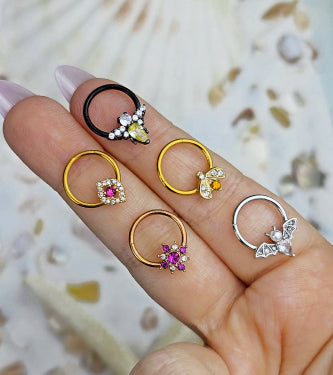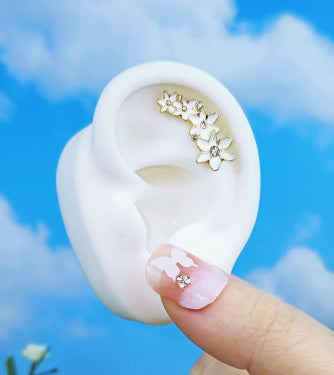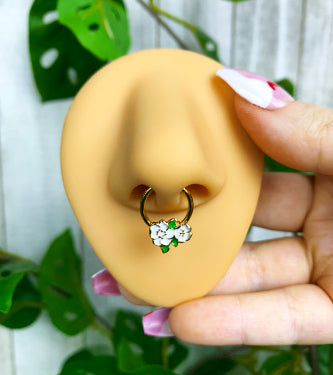So if any of you have ever had an allergy to nickel (like about 15 percent of Americans) you probably already know about the awesomeness of titanium. Especially for those who are pierced and nickel sensitive, titanium can really be a total life saver.
The two most common titanium alloys used in the manufacture of body jewelry are grade 23 titanium and grade 5 titanium, although various other grades may also be used, particularly in processes involving titanium plating. Grade 23 titanium jewelry is often used in the construction of solid titanium barbells and components, rather than those that are plated, and has been approved by the FDA for use in medical implants and aparatus.
Now here’s where it gets really interesting.
There’s another industry that heavily relies on titanium and titanium alloys: aerospace. That’s right, titanium, some of the same grades of titanium in fact, is used to build rockets. More specifically, titanium products are used in the framing, engines, and other components of military and commercial aircraft. Titanium is used in certain types of missiles, rockets, and rocket propelled assemblies. And last but not least, yes, it’s even used to build portions of the space shuttle.
So does this mean that we can all call ourselves rocket scientists? Not quite yet, but who knows where we’re headed.






